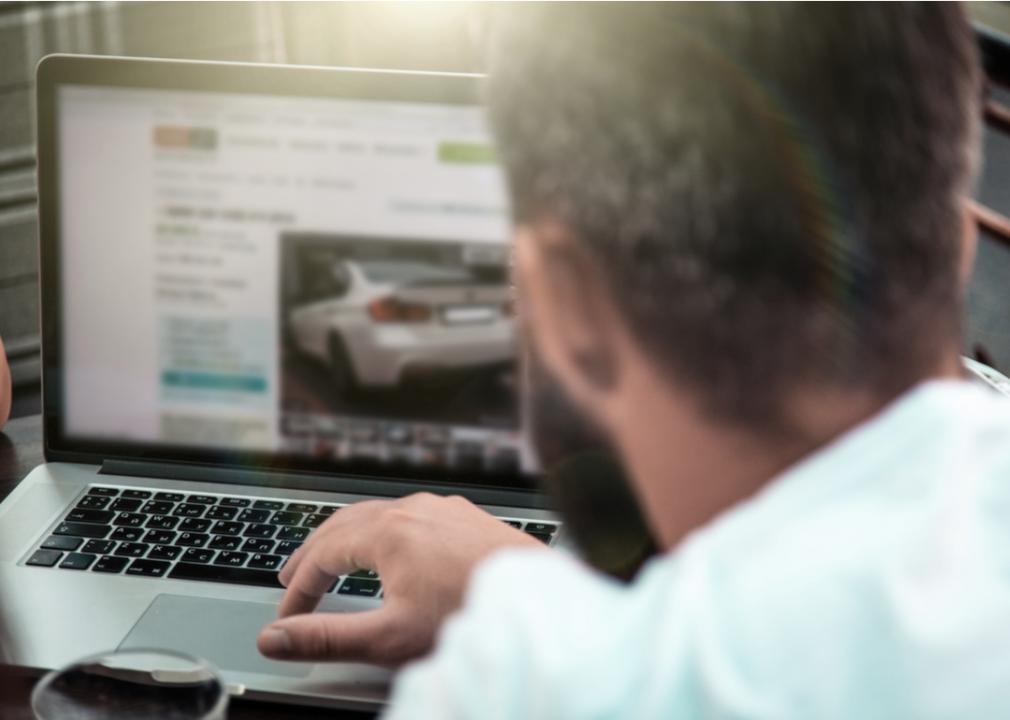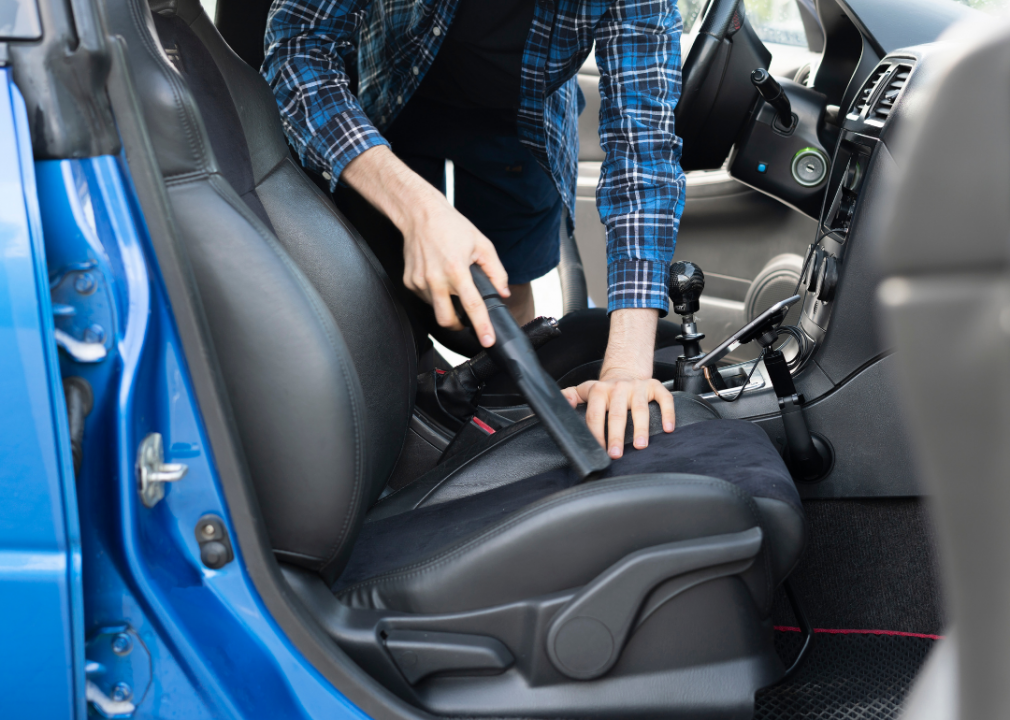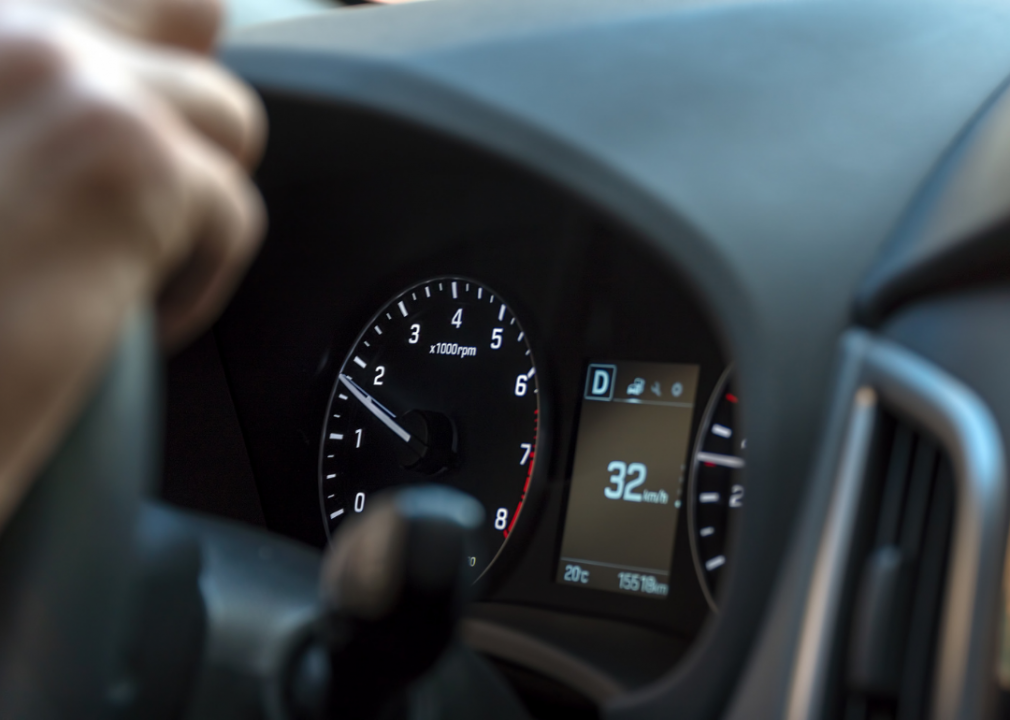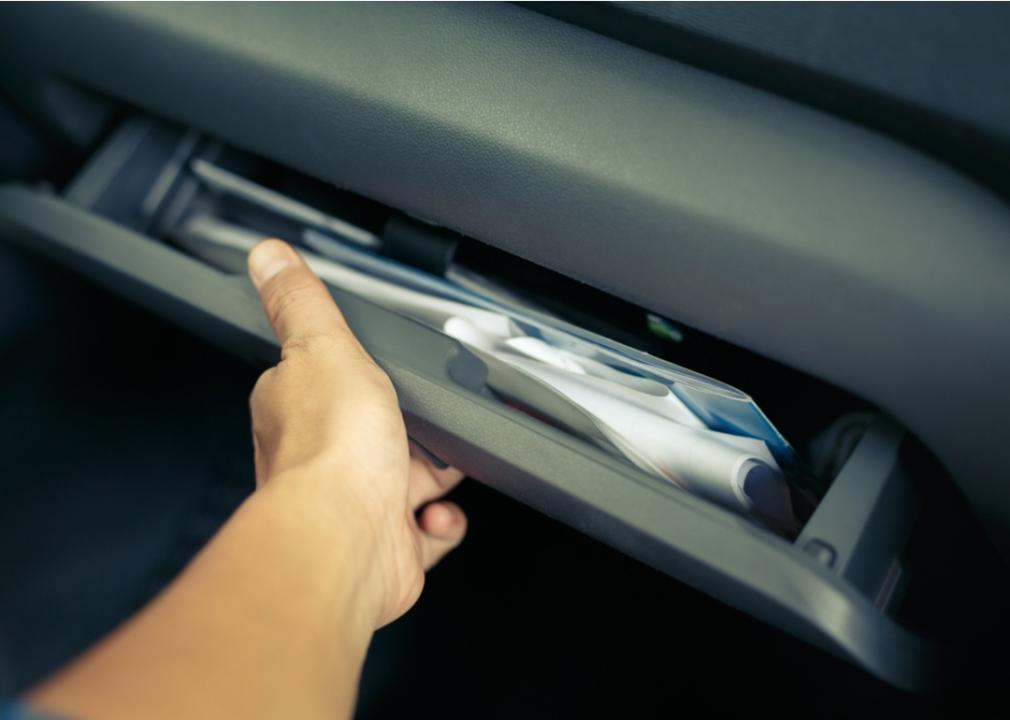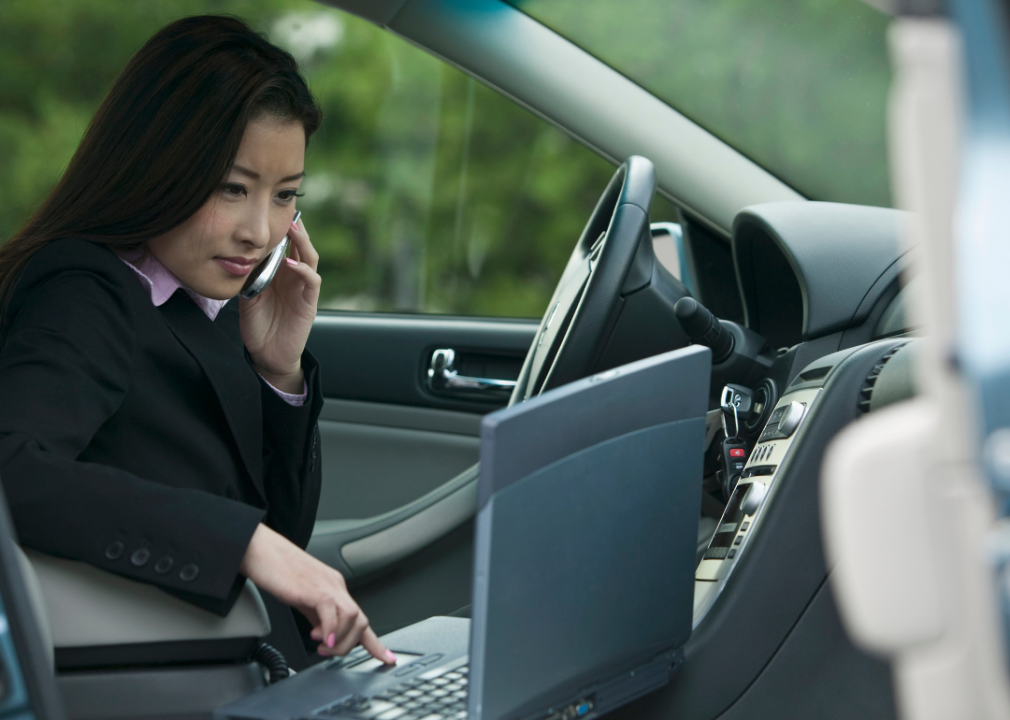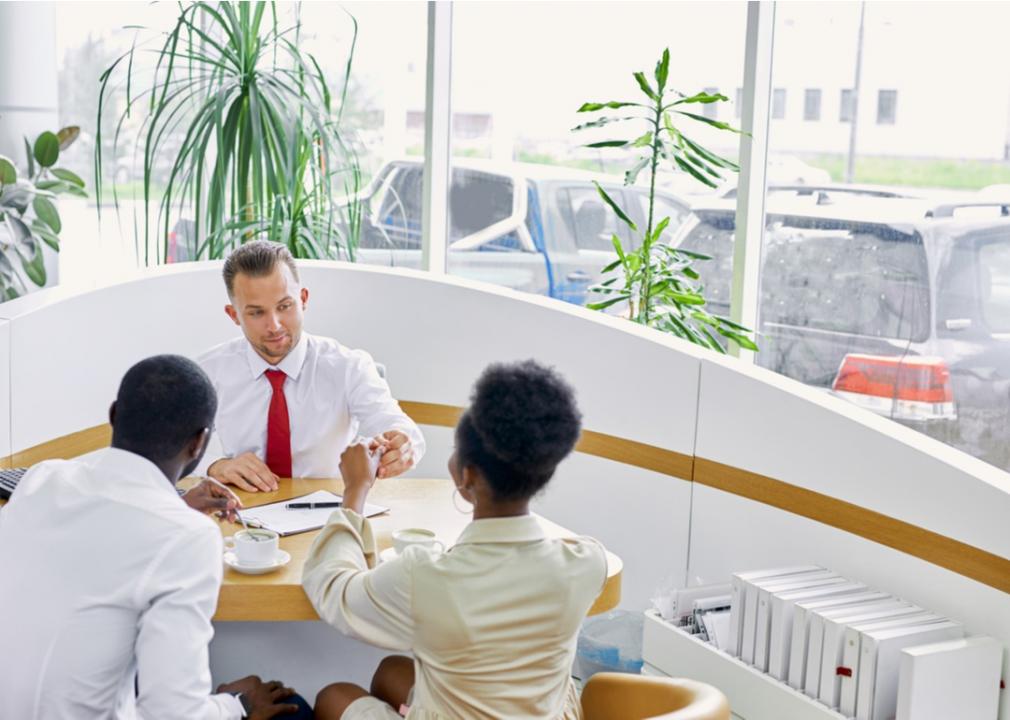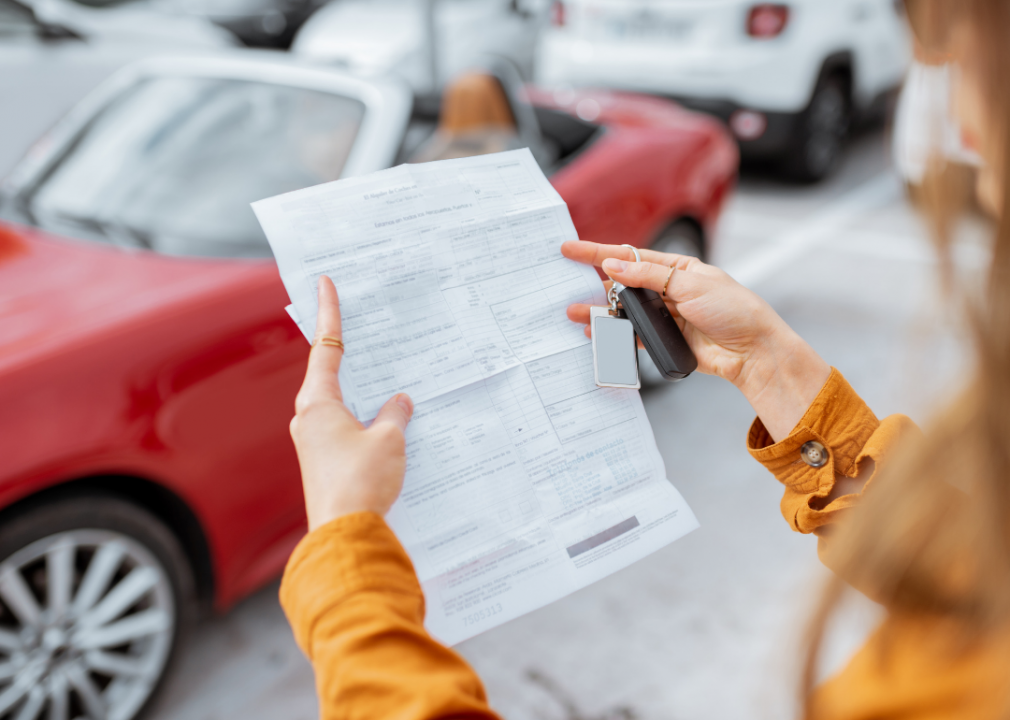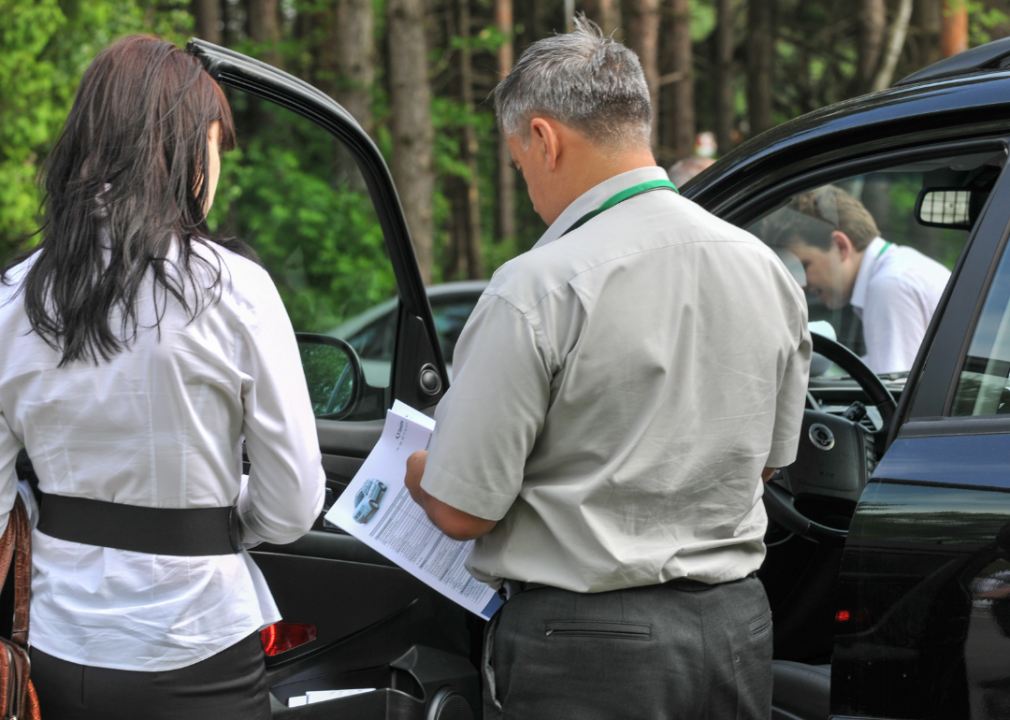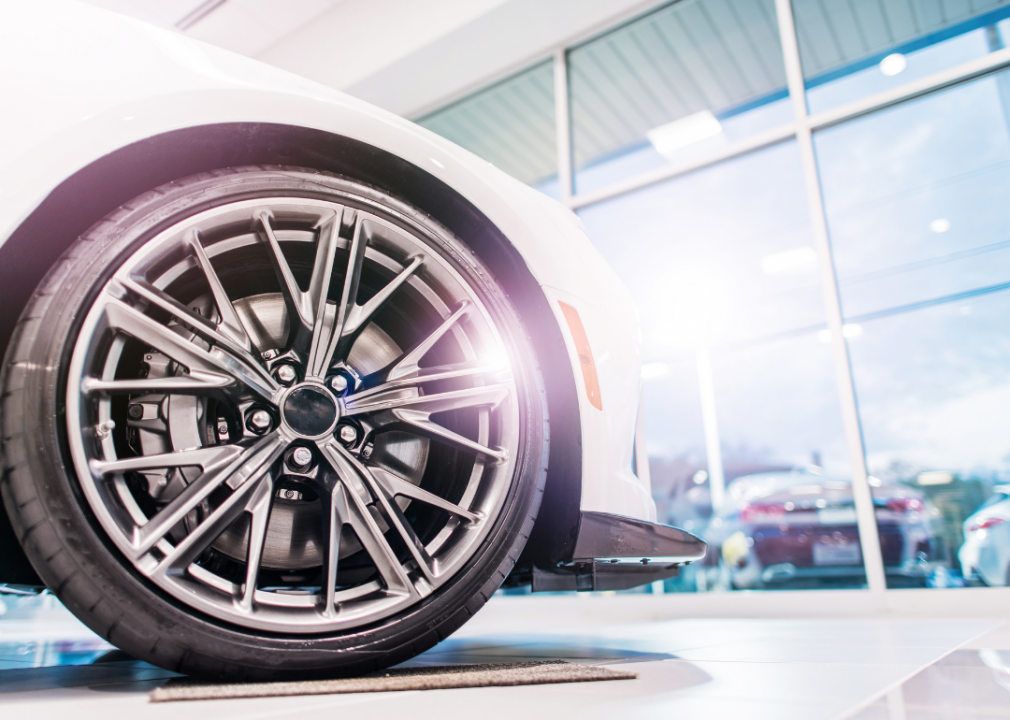Here’s how to know if you should buy your car after leasing it
Canva
Here’s how to know if you should buy your car after leasing it
Have you ever purchased a vehicle, taken it home, and then realized shortly thereafter that it’s not a good fit for your needs? It happens all the time—and it can be a costly venture. Whether it’s an issue with the size of the back seat, a problem with the cargo space, or frustration caused by too many blind spots, it’s not uncommon for new car owners to suddenly realize they’ve made a big mistake with their purchase after they’ve paid the fees and committed to the sale.
That’s one of the reasons why so many people opt to lease vehicles before buying. Leasing a vehicle can be a great way to decide whether a car is right for you, as it gives you the opportunity to drive the car, get a feel for the fit, and learn whether the vehicle truly works with your lifestyle before committing. If the vehicle doesn’t fit, you simply return it when the lease is up and find a car that’s a better fit.
On the other hand, if you decide you love your leased car—those blind spots you were warned about are nonexistent, the regular maintenance routine is simple, and the drive is perfect—then you have the option to purchase the vehicle when your lease is up. This option is called a lease buyout, and it allows you to purchase the vehicle at the end of your lease rather than returning it to the car dealership. What you pay for the car during a lease buyout is based on the car’s residual value, which is the car’s predicted value at the end of your lease. This price is agreed upon during your lease signing, so you’re well aware of what you’ll owe if you opt for a lease buyout.
While the terms and price of a lease buyout are clear, deciding whether you should buy your car after leasing it can be less cut and dry. As with any financial decision, there are plenty of factors to consider before buying a car after leasing it, and it’s important to understand what they are beforehand. CoPilot compiled a list of 10 things to consider regarding whether you should buy your car after leasing it. Here’s what you should know.
![]()
Nikolay Korolkov // Shutterstock
Learn the market value of the vehicle
Before purchasing your leased vehicle, look closely at the market value, or the price the dealer would get for the car if it was sold on the lot to someone else. To get an accurate idea of the price, compare apples-to-apples—look at cars with the same features, engine size, upgrades, model, year, and other factors.
As you research the market value, consider what the asking prices are from both the car dealers and private sellers in your area. This will give you a good idea of the average asking price for the vehicle, which you can weigh against the cost of buying the vehicle after your lease is up. If you find that you can buy the car for less than the market value, you may want to consider buying it after your lease is up.
Canva
Evaluate the car’s interior and exterior wear and tear
Kids, pets, and heavy driving or usage can cause some serious wear and tear to a vehicle. While dings, scratches, or worn interior may be a normal part of heavy usage, it can cost you a pretty penny when you return your leased vehicle. Those extra costs come from the fact that the dealer you leased the car from will need to fix the torn interior or the door dings before selling it on the lot. And, you agreed to be responsible for the costs when you signed your lease agreement—which means that if you return a leased vehicle with a ton of damage, you’ll be coughing up the cash for the fees to fix it.
If you want to avoid these costly repairs, opt to purchase the vehicle when your lease is up instead of turning it in. It may even end up being cheaper for you to buy the vehicle and fix the damage rather than paying out of pocket for the repairs.
Canva
Weigh the current mileage of the vehicle
Leased vehicles almost always come with annual mileage limitations—and most lease agreements limit the maximum annual mileage to between 10,000 and 15,000 miles. If you find you’re over the mileage limit at the end of your lease agreement, you’re going to be stuck shelling out for penalties when you turn in the car.
In most cases, you’ll pay an extra penalty for each mile you drive over the limit. The penalty amount varies by dealer, but it’s typically between 15 cents and 20 cents per mile—and considering the average overage is about 12,000 miles, the costs can add up quickly. That said, you can avoid these extra fees by opting to purchase the vehicle at the end of your lease, so it may make sense to do so if you’re over the mileage limits on your lease.
socrates471 // Shutterstock
Evaluate the maintenance and mechanical history of the vehicle
How well did you take care of the car during your lease? Did you regularly get maintenance done on the car—things like oil changes, air filter changes, and tire rotations—or did you neglect the maintenance schedule instead? You should weigh these factors, as well as the car’s mechanical history, to decide if you want to purchase the vehicle.
A car with a good maintenance track record is going to be more reliable than a vehicle that has had routine maintenance neglected—or has had mechanical issues—so keep that in mind when you’re deciding whether to purchase it. Some engine issues may seem minor right now, but these problems tend to compound as more miles are put on the car. As such, purchasing a vehicle that had mechanical or maintenance issues during your lease could end up being costly in the future.
Canva
Decide whether the loan costs make sense
If you’re planning to finance the purchase after your lease expires, you should also consider the cost of the loan. The vehicle will be a few years old at the end of your lease, which means the interest rates offered will almost certainly be higher than they would be on a new vehicle. That can cause the cost of the vehicle to increase substantially, especially if you’re offered a higher interest rate due to credit or debt-to-income issues. And, when the interest is calculated in, the total cost of the vehicle could even end up being more than it’s worth—causing you to immediately be upside down on your loan.
The best way to determine whether the loan makes sense is to shop around and do the math with the interest rates you’re offered. Once you get those numbers, compare the total cost of the vehicle—with the interest and financing charges—to what dealers and private sellers are asking for similar vehicles.
UfaBizPhoto // Shutterstock
Figure out whether you can afford the monthly payments
The total cost of the car, with interest, isn’t the only financial factor to consider. You should also determine whether you can afford to make the monthly payments on the car if you’re purchasing it. When you finance the purchase of a used vehicle, you are typically required to finance it for a shorter loan term than you’d get with a new vehicle purchase. That’s especially true for vehicles that are a few years old, as yours will be after your lease.
With a shorter loan term comes higher payments because you’re paying off the cost of the vehicle in less time, so you’ll have to make larger payments each month to stay on schedule. As such, the monthly costs for your car loan can quickly surpass what you have earmarked for your budget—so make sure the payments are will fit into your budget before you agree to a purchase of your formerly leased vehicle.
Canva
Look closely at the timing of the purchase
The timing of your leased vehicle purchase matters a lot when it comes to how much you’ll pay for the car. You may have the option to purchase the car before your lease expires via an early buyout, which may make sense if you’re regularly exceeding the mileage agreement or if car prices are expected to increase in the near future.
An early buyout is not always a good idea. When you opt into an early buyout, you’ll likely be required to pay some hefty fees and finance charges, though it will depend on the terms of your lease agreement. Before you take advantage of an early buyout on your lease, check the terms in your lease agreement to see what you may owe for doing so. If there are a ton of extra fees to contend with, you might want to wait—even if it means paying for the extra miles you drove at the end of the lease.
Canva
Weigh any extra fees you may owe
There are quite a few fees that come with leasing a vehicle, and the same is true if you want to buy the car after your lease expires. Take, for example, the purchase option fee, a charge that is tacked on to the cost of buying a car after the lease is up. This fee typically runs a few hundred dollars—and there could be other fees to contend with, too.
As with the cost of the loan, these extra fees can add quite a bit on to the cost of the vehicle, and may make it more expensive to purchase the leased car than it would to buy a different, but comparable, vehicle from the dealer lot. Take a close look at the buyout total and the fees included before you agree to purchase the vehicle, or you may end up with a raw deal that costs you more than you bargained for at the beginning of the lease.
Canva
Think about whether you want to avoid car shopping and haggling
One of the perks of buying a vehicle after your lease is over is that you have a clear idea of the purchase price beforehand. That means you can avoid haggling over the purchase price of the vehicle—it’s typically just a cut-and-dry deal. Shopping for a new car can also be overwhelming—and in some cases it can be extremely tough to find what you want, especially when there’s a shortage of vehicles from which to choose.
On the other hand, buying a leased vehicle can be thought of as the path of least resistance. You know the vehicle’s track record, you know the cost, and you don’t have to search for what you’re looking for in a vehicle. It’s right there in front of you, and you don’t have to deal with the stressful haggling or shopping process.
Canva
Consider how you truly feel about keeping the vehicle long term
Are you the type of driver who wants the newest and best car technology? Do you find yourself eyeballing the other, newer cars on the road in a fit of envy? Or do you stick to the same type of vehicle year after year? The reality is that many people opt for a car lease in order to switch cars every few years without a firm commitment, so make sure you keep your preferences in mind when deciding whether to buy a car after leasing it.
You may love the car now, but if you’re the type of driver who needs or wants to switch things up every few years, think twice before you buy. If you change your mind shortly after you buy and decide to swap the car out for another vehicle, it will cost you a lot of money to do so—or could land you upside down on your loan, which is never a good thing for your finances.
This story originally appeared on CoPilot
and was produced and distributed in partnership with Stacker Studio.

